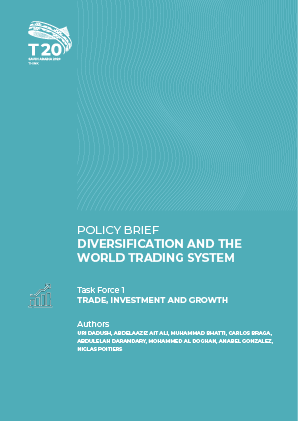Opinion
Buenos Aires summit is a good place to start fighting back against destructive unilateralism
Ten years after the G20 proved its effectiveness in dealing with the global financial crisis, it needs to step up its efforts to overcome a political crisis, fuelled by destructive unilateralism, that threatens international governance on trade, investment and tax.
This opinion has been originally published by the Financial Times
Zhang Jun, China’s G20 sherpa and assistant foreign minister, makes a strong plea to resist protectionism, safeguard the World Trade Organization and fight inequality (“ Our common prosperity demands co-operation on trade”, November 26).
Ten years after the G20 proved its effectiveness in dealing with the global financial crisis, it needs to step up its efforts to overcome a political crisis, fuelled by destructive unilateralism, that threatens international governance on trade, investment and tax.
Against this background, as members of the T20 Task Force on Trade, Investment and Tax Cooperation, we propose that the G20 take initiatives in three key areas. First, on trade, the G20 should back up its call for modernising the WTO with concrete proposals. Strengthening the WTO’s rulemaking capacity on digital trade taking into account the digital divide would be a good start.
There is dire need for the G20 to reform its monitoring of protectionism, taking into account new trade distortions such as export incentives. As trade liberalisation — and protectionism — can lead to disruptions, the G20 should support a fairer globalisation by speaking out for gradualism, supported by general safety nets and increased workforce mobility.
Second, building on the progress of the Base Erosion and Profit Shifting (BEPS) project, the G20 should curtail harmful tax competition. Increasing transparency on tax incentives granted by G20 countries would be an important first step.
The G20 should also deliver on its long overdue promise to phase out tax incentives for fossil fuels. A joint framework for taxing the digital economy should receive high priority.
Third, the G20 needs to pay attention to the mounting challenges of the international investment regime which is experiencing a legitimacy crisis. The G20 should resume its work on international investment policy reform and investment facilitation during the Japanese G20 presidency in 2019. We realise that these proposals require actions beyond the Buenos Aires summit. Still, it is up to the G20 to take the lead in advancing these reforms. Otherwise, we should stop referring to the G20 as the premier forum for international economic co-operation.
Republishing and referencing
Bruegel considers itself a public good and takes no institutional standpoint.
Due to copyright agreements we ask that you kindly email request to republish opinions that have appeared in print to [email protected].







